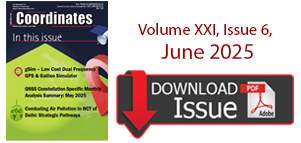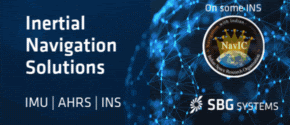| GIS News | |
GIS
Bentley Systems announces Seequent’s acquisition of Minalytix
Bentley Systems has announced that its Seequent business unit has acquired Canadian software company Minalytix, the developer of MX Deposit. The acquisition extends Seequent’s cloud capabilities and solutions for mining, including greenfield exploration, resource development, and mining production.
MX Deposit simplifies and controls how drill hole and other field data is collected, managed, and shared throughout the lifecycle of a deposit. Mining exploration teams can configure the solution for various activities, including diamond and percussive drilling, grade control, underground face sampling, metallurgical sampling, stockpile sampling, and sampling mill circuits. bentley.com
GeoCloud selected for Google for Startups Black Founders Fund
GeoCloud was selected to join the second cohort of the Google for Startups Black Founders Fund, a $10 million initiative designed for Black founders who are building great companies yet are often locked out of access to the funding that is critical to their success. GeoCloud is one of a select few highpotential startups that the Google for Startups team has selected for this year’s nationwide cohort. geocloud.co
UN-GGIM marks a decade of global cooperation
Globally adopted frameworks developed in the first decade of the United Nations Committee of Experts on Global Geospatial Information Management (UN-GGIM) are enabling Member States to unlock the true power of locationbased data. At its eleventh session, the Committee focussed on consolidating these achievements to meet future challenges, such as the on-going pandemic and the 2030 Agenda for Sustainable Development, to ensure that no one is left behind. UN-GGIM convened its eleventh session in a scaled-down virtual format consisting of three two-hour meetings on 23, 24 and 27 August 2021. It was successfully concluded through a modality that allowed the Committee of Experts to collectively consider, consult and agree decisions that set the agenda and work programme for the period ahead.
In his opening statement of the eleventh session, Mr. Liu Zhenmin, UN Under- Secretary-General for Economic and Social Affairs said: “This important annual gathering – now being convened virtually for the second time – underpins the ongoing global stress arising from the COVID-19 pandemic.”
“Impacting the entire world, the pandemic has reinforced that – as with the UN Sustainable Development Goals (SDGs) themselves – the most vulnerable countries continue to face the greatest challenges in collecting, analysing, maintaining, and using timely and reliable data, including geospatial and other disaggregated location-based data.”
Noting that adversity can also bring new opportunities, Mr. Liu added that Member States can “achieve a more comprehensive and integrated data approach through the implementation of the frameworks and methods that have been developed by this Committee of Experts, during its first decade of work. The United Nations Integrated Geospatial Information Framework, or UN IGIF, is one such globally adopted framework”
Described by Stefan Schweinfest, Director, UN Statistics Division, as the ‘creme de la creme’ of the complex architecture and achievements in the past ten years of UN-GGIM, the UN IGIF is the globally agreed paradigm for Member States to achieve a comprehensive and integrated approach to data. The Committee’s endorsement of the Strategic Plan of the High-Level Group on the Integrated Geospatial Information Framework (HLG-IGIF) will sustain the considerable progress towards implementation made by countries, by providing strategic leadership and oversight for its continued development and improvement.
In addition to the HLG-IGIF Strategic Plan, the Committee also endorsed the third edition of the Guide to the Role of Standards in Geospatial Information Management (Standards Guide). The Guide is a living online resource aligned with the UN IGIF to promote the use of standards for geospatial information management.
UN-GGIM also noted the SDGs Geospatial Roadmap and its role in recognizing location-based data as official data for the SDGs and their global indicators. The Roadmap will directly bring the global geospatial and statistical communities closer and foster greater geospatialstatistical integration in advancing the 2030 Agenda. The ‘Position Paper on Sustaining the Global Geodetic Reference Frame’ and the ‘Concept Paper on Establishing a Global Geodetic Centre of Excellence’ was adopted by UN-GGIM and will serve as key guidance to ensure the sustainability and enhancement of the Global Geodetic Reference Frame for Member States. http://ggim.un.org.
Lemur release enhances enterprise mobile GIS capabilities
Critigen released its mobile GIS solution Lemur. It delivers enterprise mapping capabilities that complement field service apps used in utilities, oil and gas, transportation, local and federal government, and other large organizations. The latest release provides expanded support for the enterprise, with enhancements to data synchronization, security, and more. www.critigen.com











 (No Ratings Yet)
(No Ratings Yet)






Leave your response!